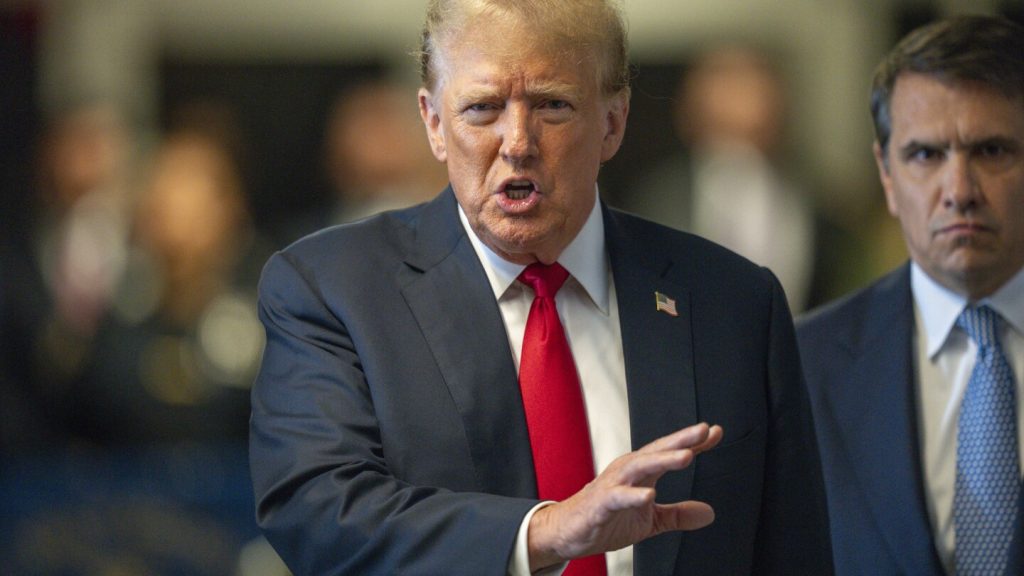Judge Aileen Cannon has denied prosecutors’ request to bar former President Donald Trump from making public statements that could endanger law enforcement agents involved in his classified documents case in Florida. The prosecutors argued that such a restriction was necessary to protect law enforcement from potential threats and harassment after Trump baselessly claimed that the Biden administration wanted to kill him during a search of his Mar-a-Lago estate. Cannon criticized prosecutors for not giving defense lawyers adequate time to discuss the matter before filing the request and warned of potential sanctions if court requirements were not met in the future. The request was denied without prejudice, allowing prosecutors to file it again.
Trump’s lawyers were delivering their closing argument at trial in another criminal case in New York related to a hush money payment to a porn actor during the 2016 presidential campaign when the judge made her decision. This decision further highlights the ongoing bitterness between Judge Cannon, who was appointed by Trump, and prosecutors who have accused the former president of illegally hoarding classified documents from his Mar-a-Lago estate and obstructing FBI efforts to retrieve them after leaving the White House. Trump has pleaded not guilty and denied any wrongdoing in this case.
There have been instances where Cannon has chided prosecutors for various matters, including accusing special counsel Jack Smith’s team of wasting the court’s time during hearings. Prosecutors have expressed frustration with Cannon’s rulings, claiming that some requests were based on fundamentally flawed legal premises. The latest request from prosecutors stemmed from Trump’s false claim that FBI agents who searched his estate were authorized to shoot him, exposing law enforcement officers to potential threats and harassment. Prosecutors argued that Trump’s statements endangered the agents involved in the case and urged the judge to restrict his speech to prevent further risks.
Defense attorneys opposed the proposed speech restriction on Trump, calling it unconstitutional and noting that the identities of law enforcement officers in the case were protected. They had requested time to discuss the matter with Trump before prosecutors filed the request, but urgency was cited by prosecutors, prompting the immediate filing. Prosecutors maintained that while there might not be an imminent danger, Trump’s continued false statements could endanger the agents who conducted the search. Trump’s campaign spokesperson criticized the entire documents case as a political sham and called for its dismissal, adding to the complexities of the legal battles Trump is facing as he seeks to reclaim the White House.
Apart from the ongoing New York hush money prosecution, it remains unclear whether the other criminal cases against Trump will reach trial before the November election. He has faced restrictions on his speech in two other cases due to incendiary comments that officials say threaten the integrity of the proceedings. In the New York case, Trump has been fined and threatened with jail time for violating a gag order that prohibits him from making public statements about witnesses and jurors. He is also subject to a gag order in his federal criminal election interference case in Washington, limiting his speech about certain individuals involved in the case. Despite these legal challenges, Trump continues to be a prominent figure in the political landscape as he navigates through the legal battles and seeks to secure a return to the White House.


